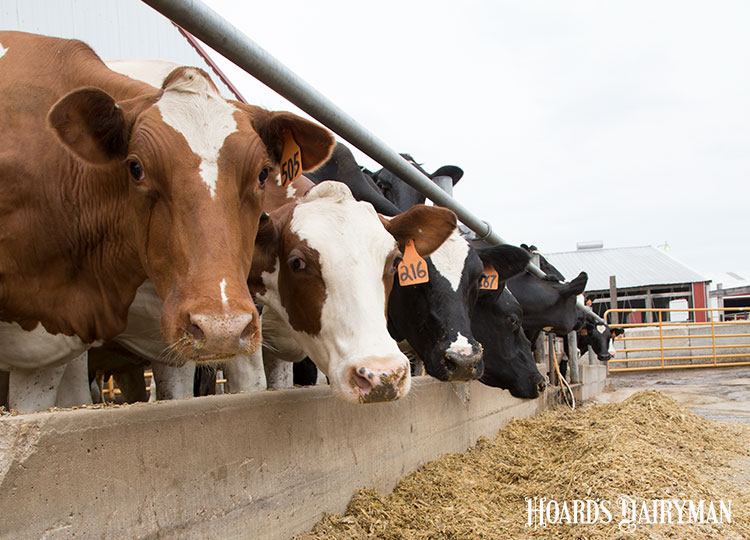
When the phrase nutrient management is used in agriculture, thoughts often go directly to the farm fields where crops are grown. However, Chanhee Lee of The Ohio State University reminded the audience at the virtual Tri-State Dairy Nutrition Conference that on dairy farms, nutrient management refers to both the nutrients fed to the cows and the nutrients that are released through manure.
As for feed, he said dairy producers want to provide the right nutrients, and the right amount of nutrients, to maximize production and improve efficiency. Then, farmers must manage the nutrients that come out the back end as manure.
“Manure is not a waste,” he stated. “The goal of manure nutrient management is improving manure quality as a fertilizer and minimizing the environmental impacts.
Lee shared a few ways that nutrition can be manipulated to change manure characteristics. These changes, he said, should not come at the expense of milk, though.
“The first goal is to have no negative production effects,” he shared. “What we want to change is manure volume, manure nutrient composition, and manure gas emissions
Focusing on the volume of manure and urine produced, he shared three ways this could be reduced:
- Elevating the proportion of corn silage as forage in the ration by cutting back the amount of alfalfa silage fed can reduce urine output. Lee said this is probably due to the higher potassium concentration found in alfalfa silage, since potassium makes cows urinate more.
- Feeding more starch can reduce fecal output by improving the digestibility of the diet.
- Adjusting dietary crude protein from an excessive level to an adequate one can lower urine production.
“If you use those strategies, you can reduce manure output by 15% easily without having a negative effect on milk production, milk yield, and milk composition,” Lee said.
Less manure output can alleviate some of the capacity needed for manure storage. It also reduces the amount of manure that needs to be applied, which can be beneficial for farms that produce more manure than they have acres to distribute it.
Still, when making any diet modifications for the sake of changing manure characteristics, Lee reiterated the importance of monitoring milk production to be sure the change does not have a negative effect on milk production.








